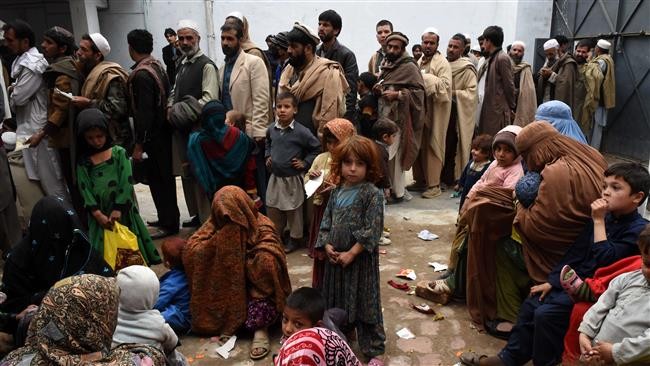by Hammad Khan Baloch 7 November 2023
In recent weeks, Pakistan has garnered international attention due to its decision to deport a significant number of illegal Afghan immigrants residing within its borders. This move, set to be enforced by November 1, has sparked a complex debate surrounding issues of national sovereignty, security, and human rights. The Pakistani government’s stance is clear: those who are considered “illegal/unregistered foreigners” and those who have “overstayed their visa validity periods” must return to their countries of origin. The decision has put nearly 1.7 million Afghans at risk of forced repatriation, according to Interior Minister Sarfaraz Bugti.
This decision comes at a time when Pakistan is grappling with a surge in deadly attacks, which it attributes to Taliban-allied militants operating from Afghan sanctuaries. Afghan nationals have been implicated in multiple suicide bombings on Pakistani soil. The allegations have led to growing concerns over national security, prompting the government to take decisive action. However, the impending deportations have also raised significant concerns, both within Pakistan and on the international stage. The United Nations High Commissioner for Refugees (UNHCR) has been at the forefront of expressing these concerns. The organization has appealed to Pakistan to continue protecting vulnerable Afghans who have sought refuge within its borders, highlighting the dire humanitarian crisis and human rights challenges that have beset Afghanistan, particularly for women and girls. The situation highlights a complex and delicate balancing act between a nation’s right to enforce its immigration policies and international obligations regarding refugees and human rights. This article aims to explore the various dimensions of the issue and present a nuanced perspective on how Pakistan can address the situation while upholding its sovereignty and respecting the rights of affected individuals.
Pakistan’s concerns regarding national security are not without merit. The country has endured a dramatic surge in deadly attacks, with the government pointing to Afghan nationals as perpetrators. The presence of Taliban-allied militants on Pakistani soil and their alleged orchestration of attacks have created a precarious environment. It is in this context that Pakistan has deemed it necessary to address the issue of illegal Afghan immigrants within its borders. In the aftermath of the Taliban’s takeover of Afghanistan in August 2021, Pakistan experienced an influx of Afghan nationals seeking refuge from the instability and insecurity in their homeland. While many entered legally, a significant number did not possess the required documentation or overstayed their visas, leading to their classification as illegal immigrants. For Pakistan, ensuring its national security is paramount, and addressing the presence of undocumented individuals is part of this broader strategy. The country has a legitimate interest in taking measures to protect its citizens and secure its borders.
The deportation of illegal Afghan immigrants in Pakistan is a complex issue that requires a delicate balance between national sovereignty and human rights. Both sides of the debate have valid arguments that must be considered. On one hand, Pakistan has the undeniable right to enforce its immigration policies and maintain its national security. The country’s concerns about the potential for violence orchestrated by Taliban-allied militants are not unfounded, and it has a responsibility to protect its citizens. On the other hand, international norms and principles, including the principle of non-refoulement, emphasize the importance of safeguarding the rights and safety of individuals who have sought refuge from conflict and instability. It is crucial to differentiate between those who pose a security threat and those who are genuinely seeking safety.
The issue of illegal Afghan immigrants in Pakistan is a multifaceted challenge that demands careful consideration and a balanced approach. While Pakistan’s sovereignty is unquestionable, it is equally essential to uphold the principles of equality and freedom of worship for every individual, regardless of their background. As the November 1 deadline for deportations approaches, it is crucial for Pakistan to address the issue in a manner that respects both its national security concerns and its international obligations regarding human rights and refugee protection. The country has a unique opportunity to demonstrate its commitment to safeguarding the rights of all individuals within its borders while maintaining security and sovereignty. This complex challenge calls for nuanced and comprehensive solutions that prioritize the safety and well-being of all affected individuals.

